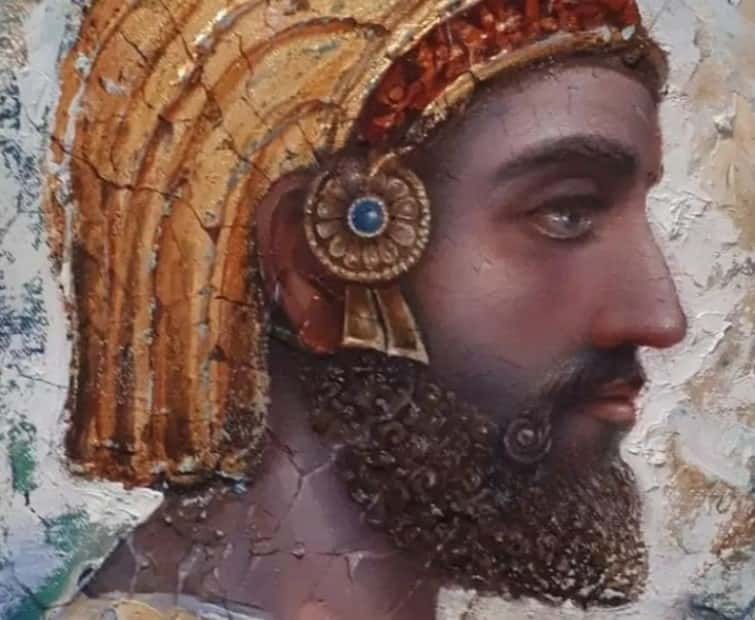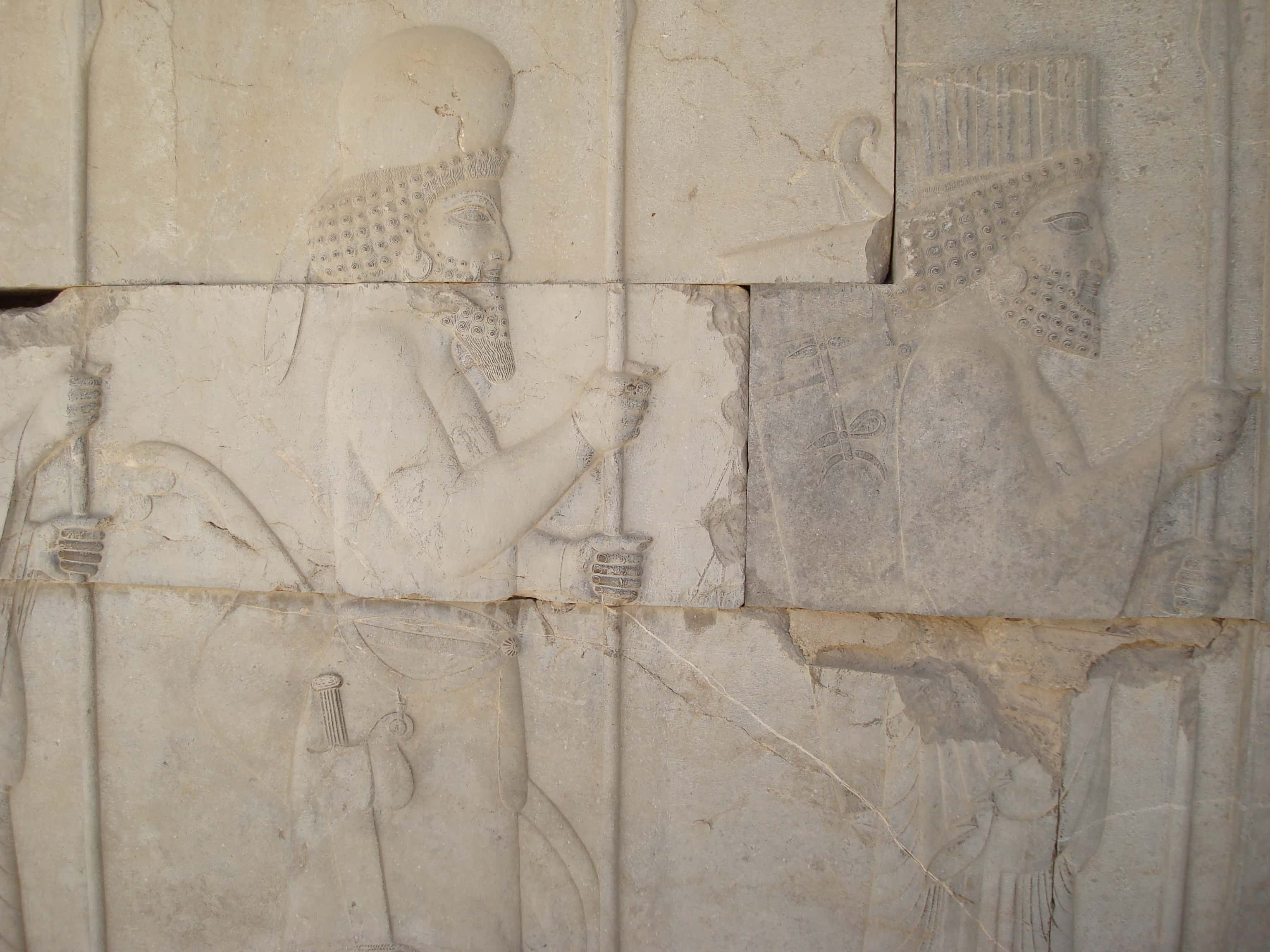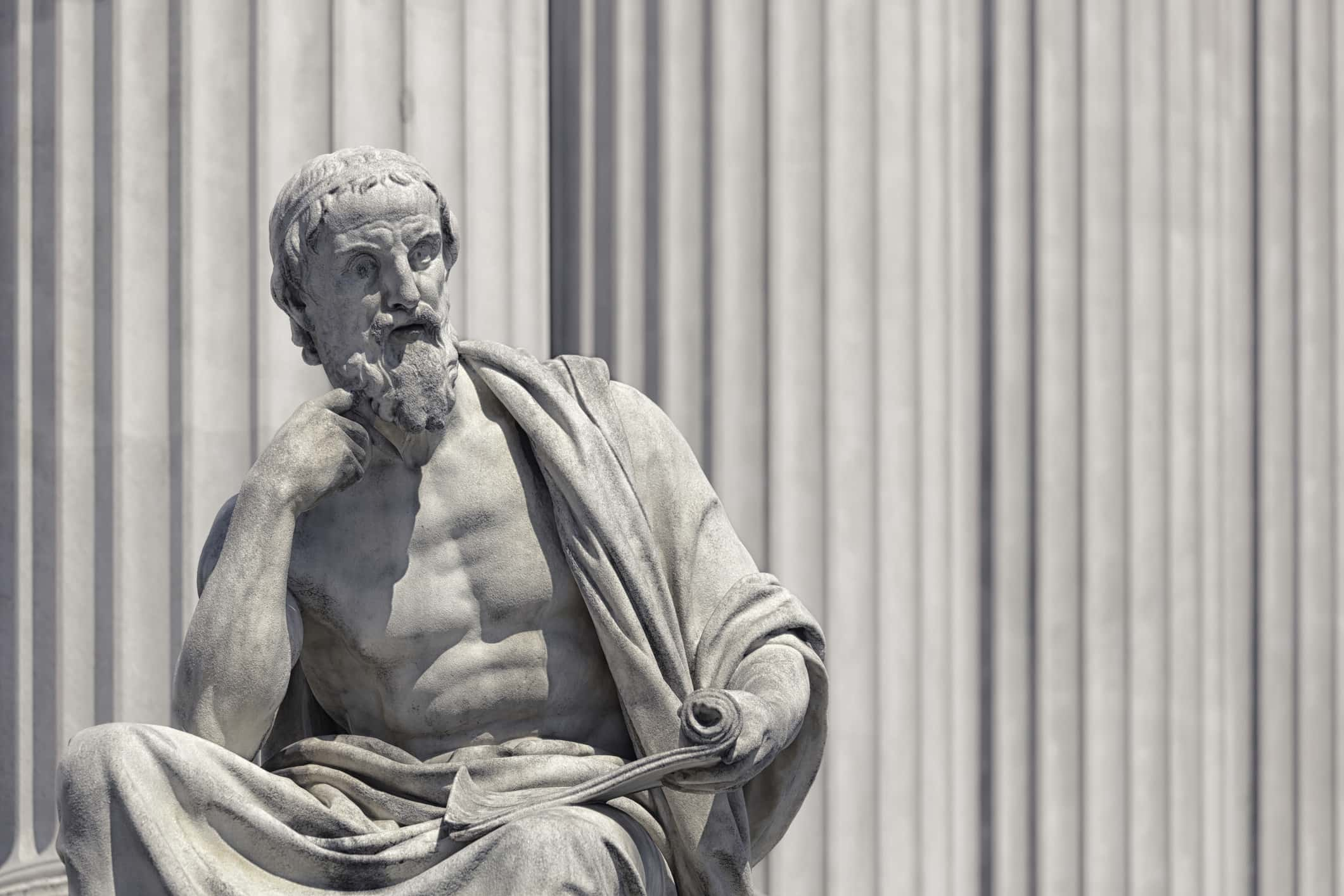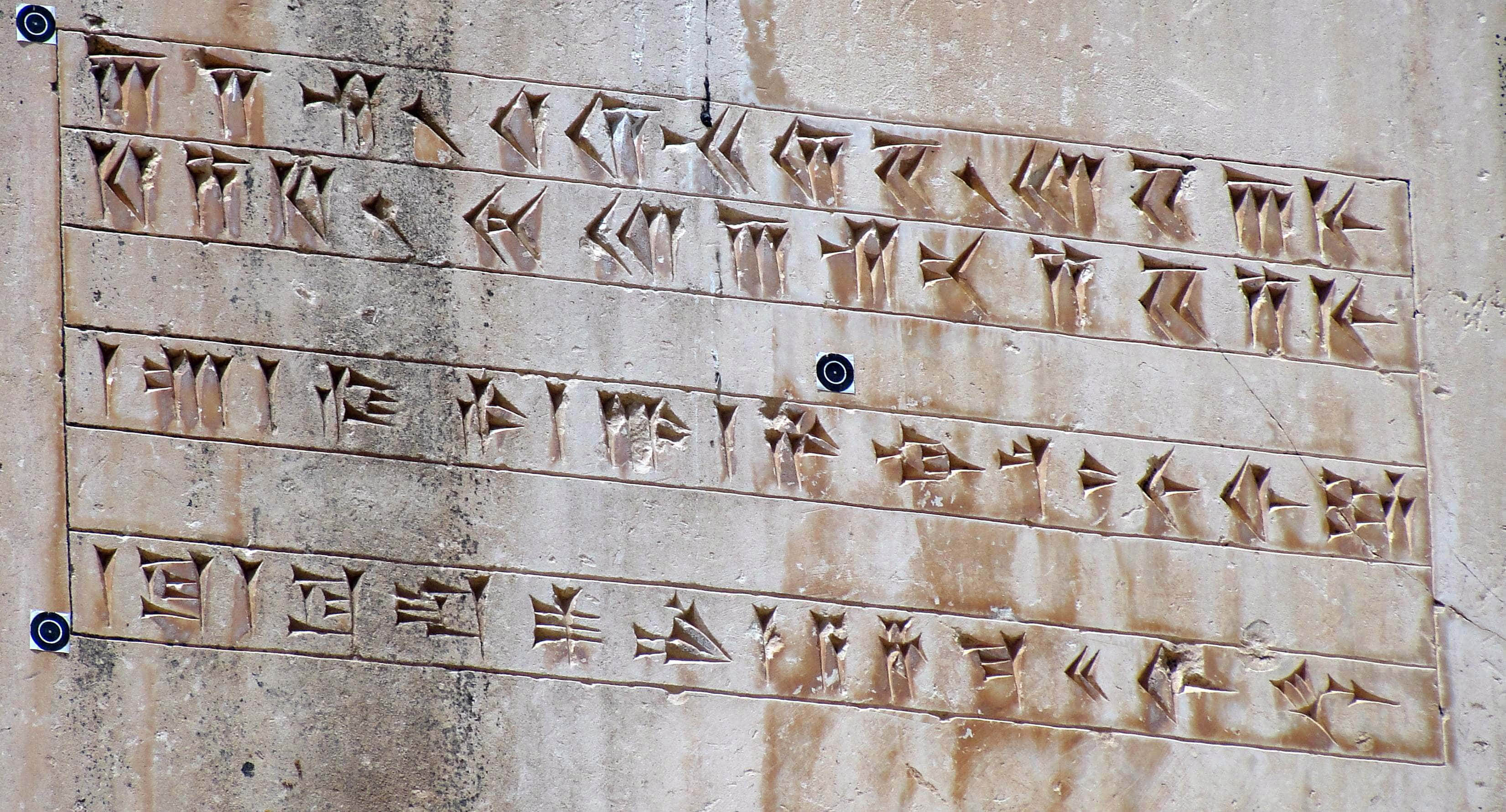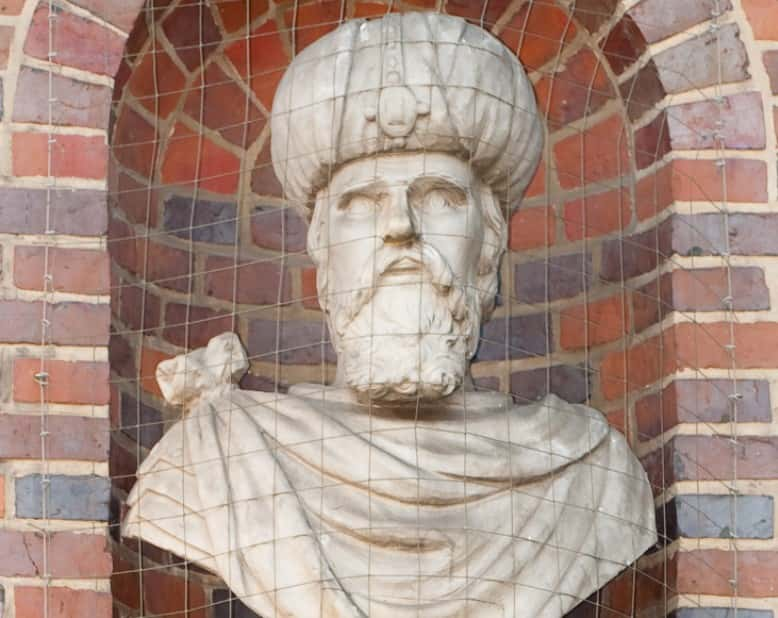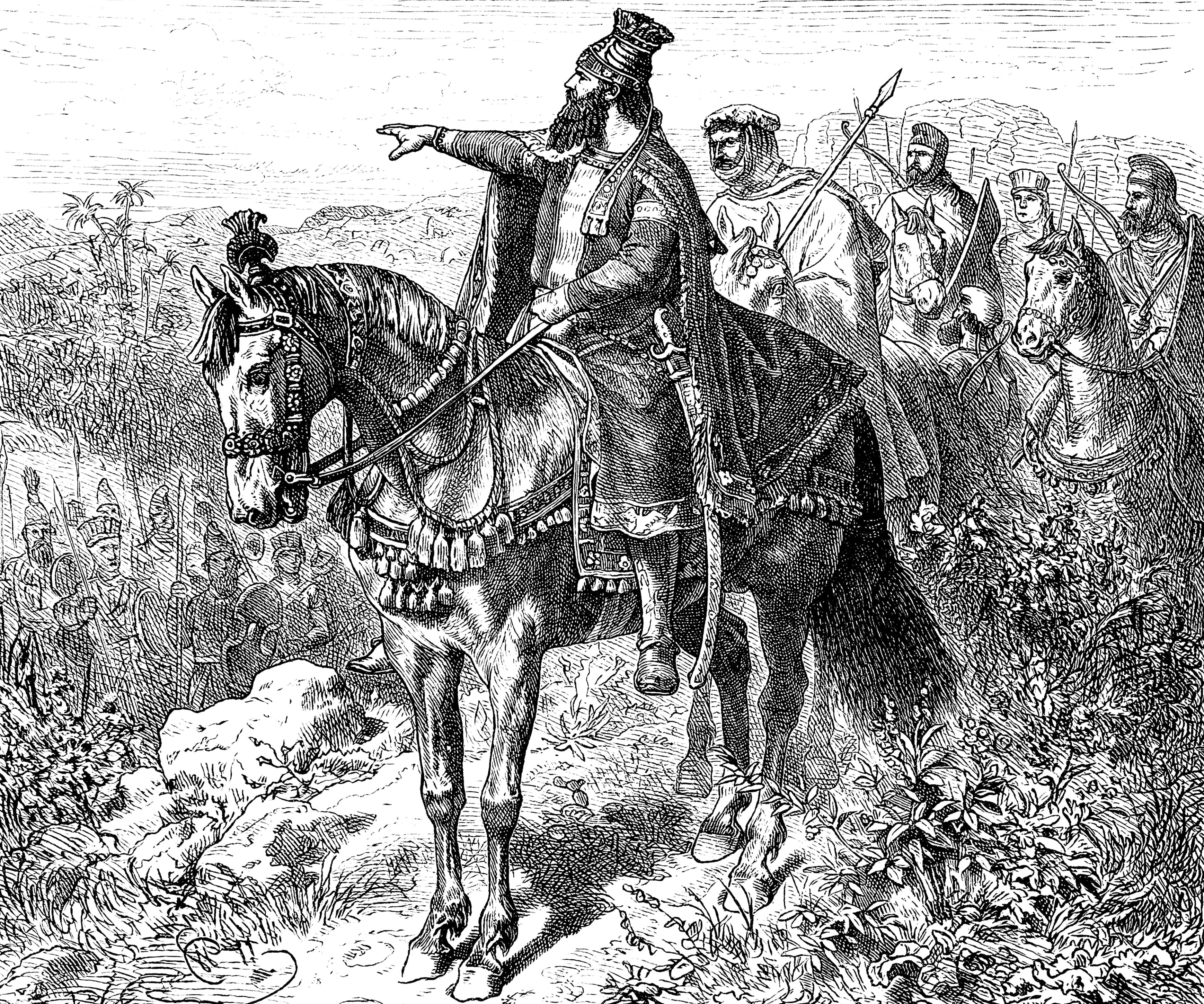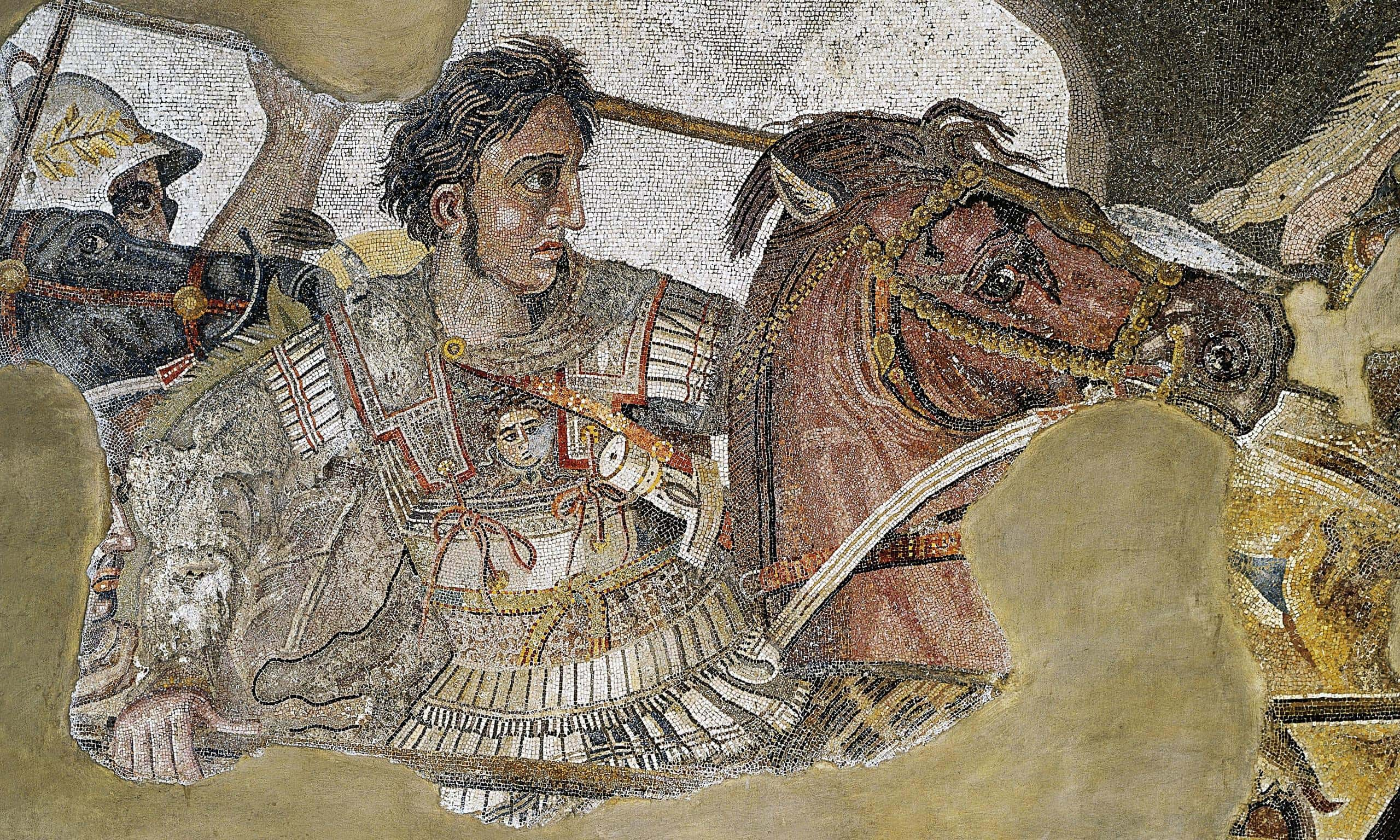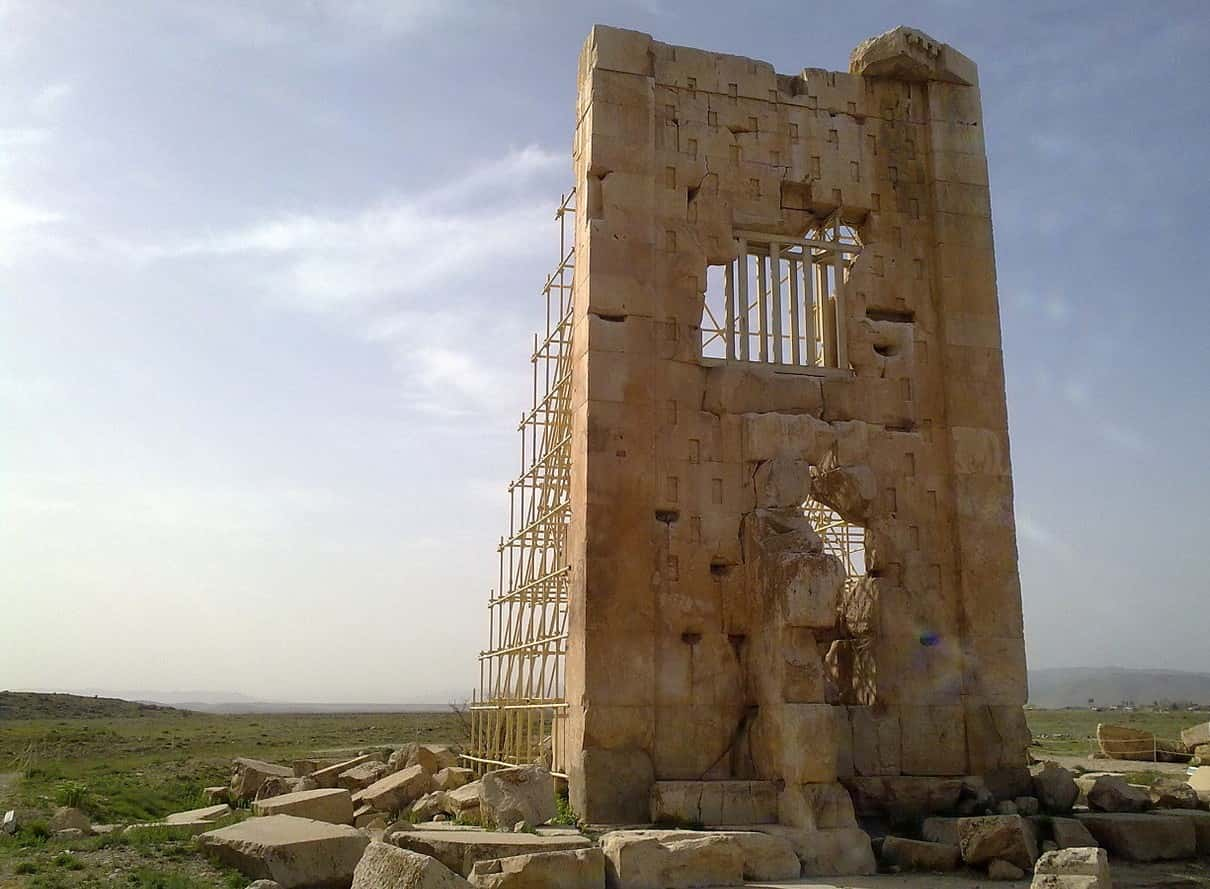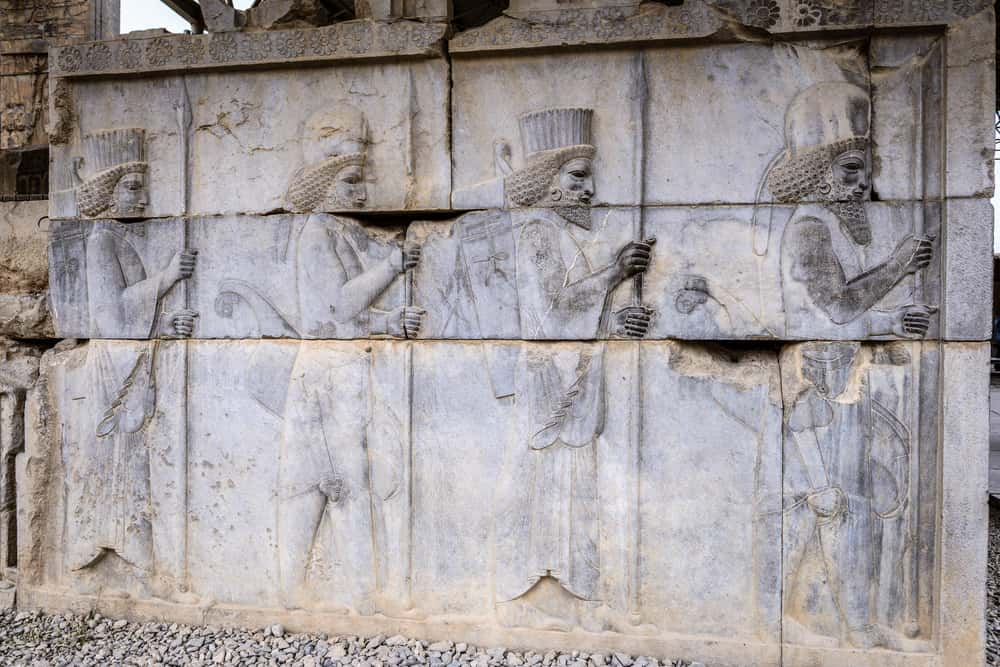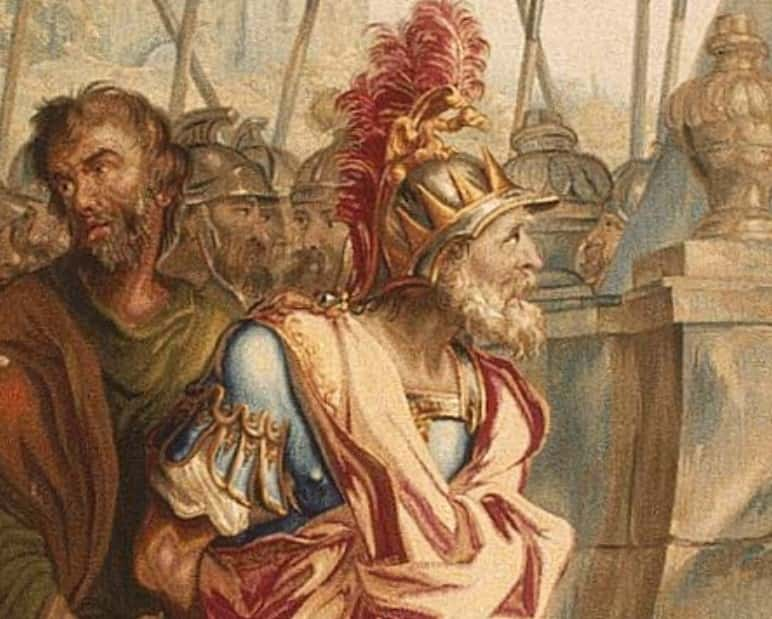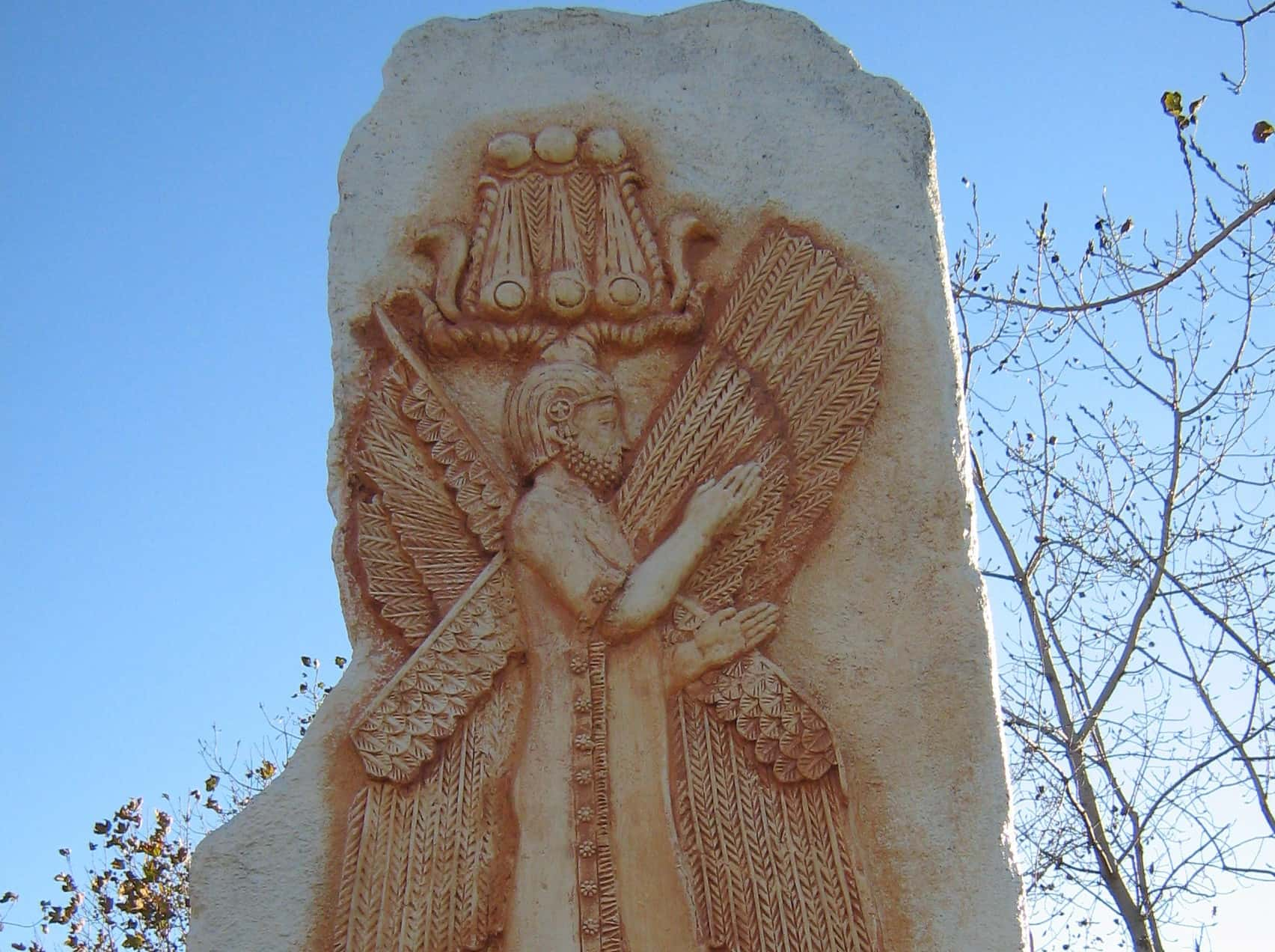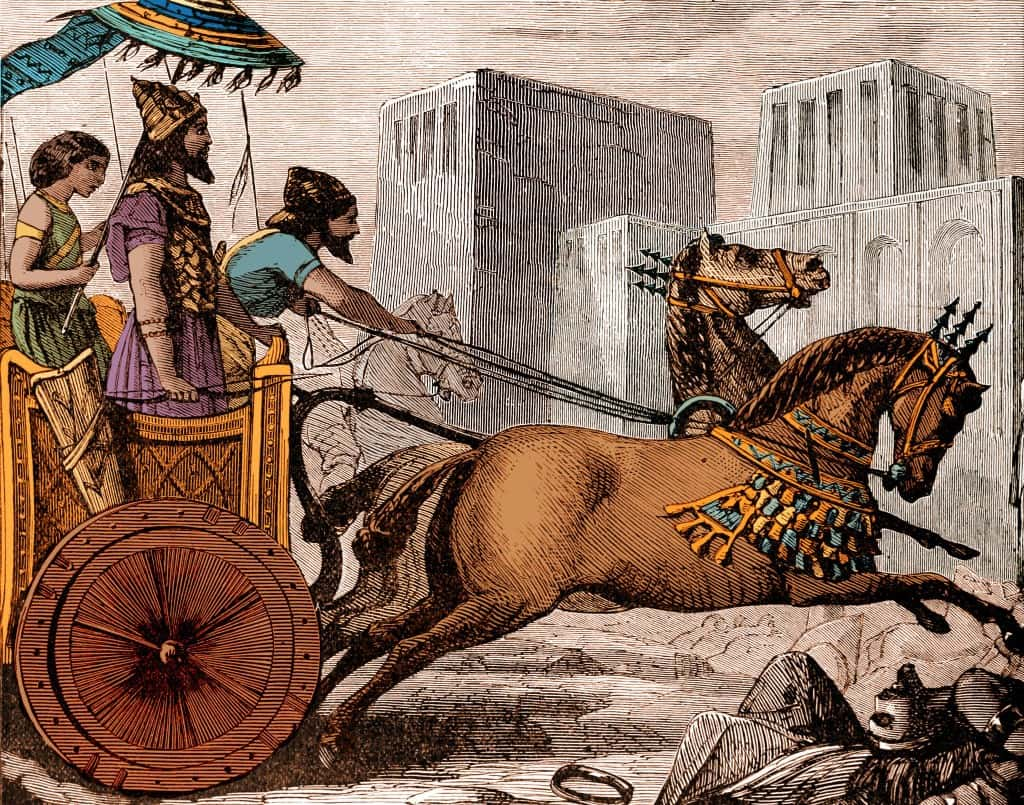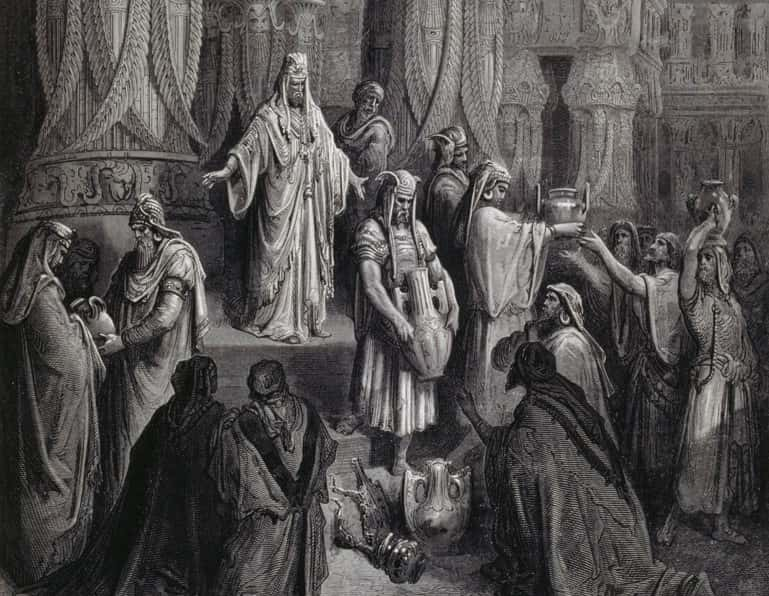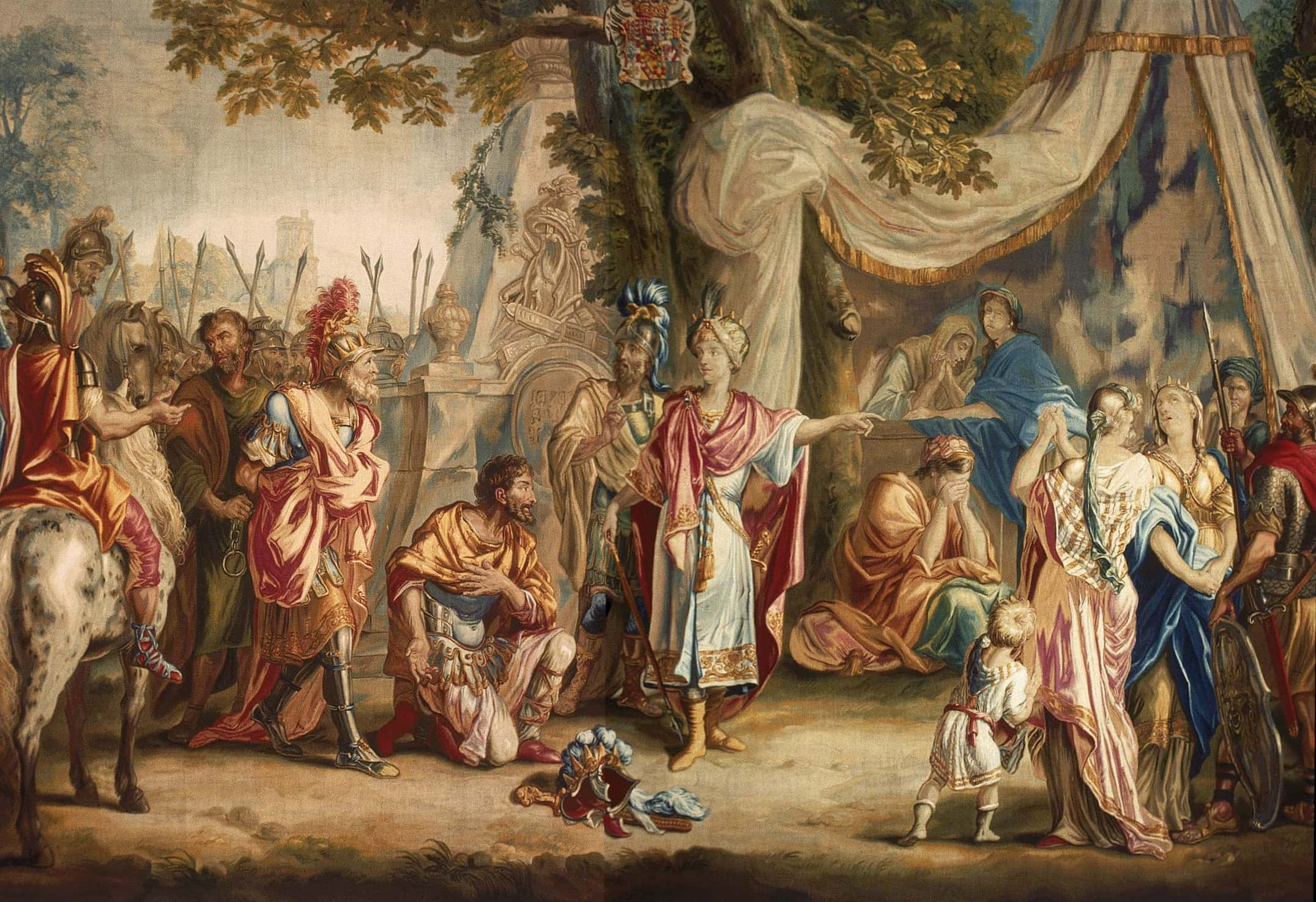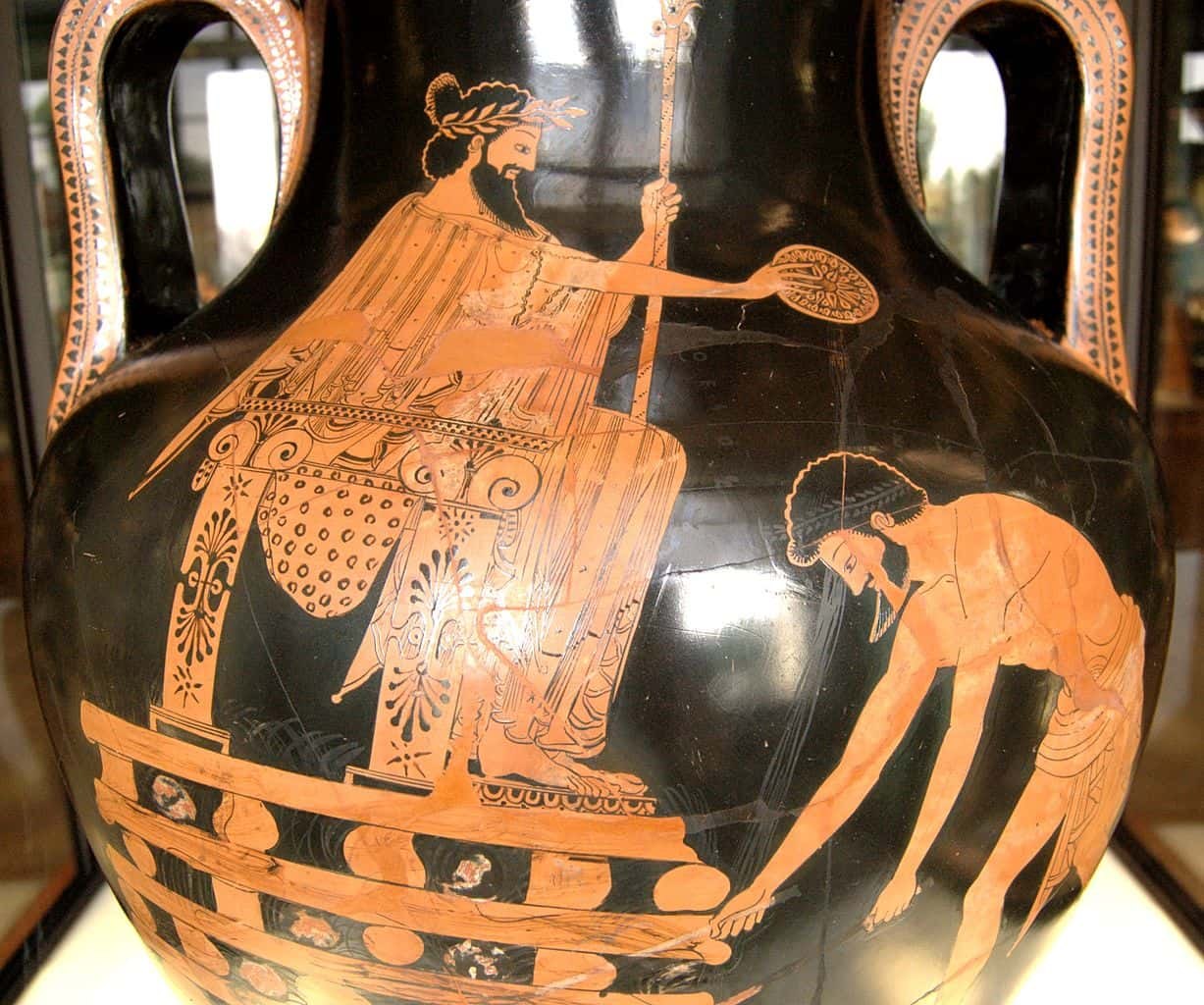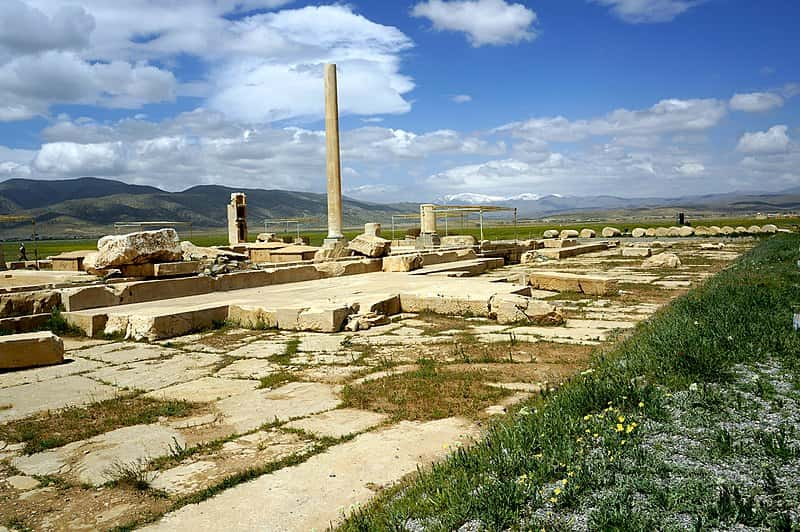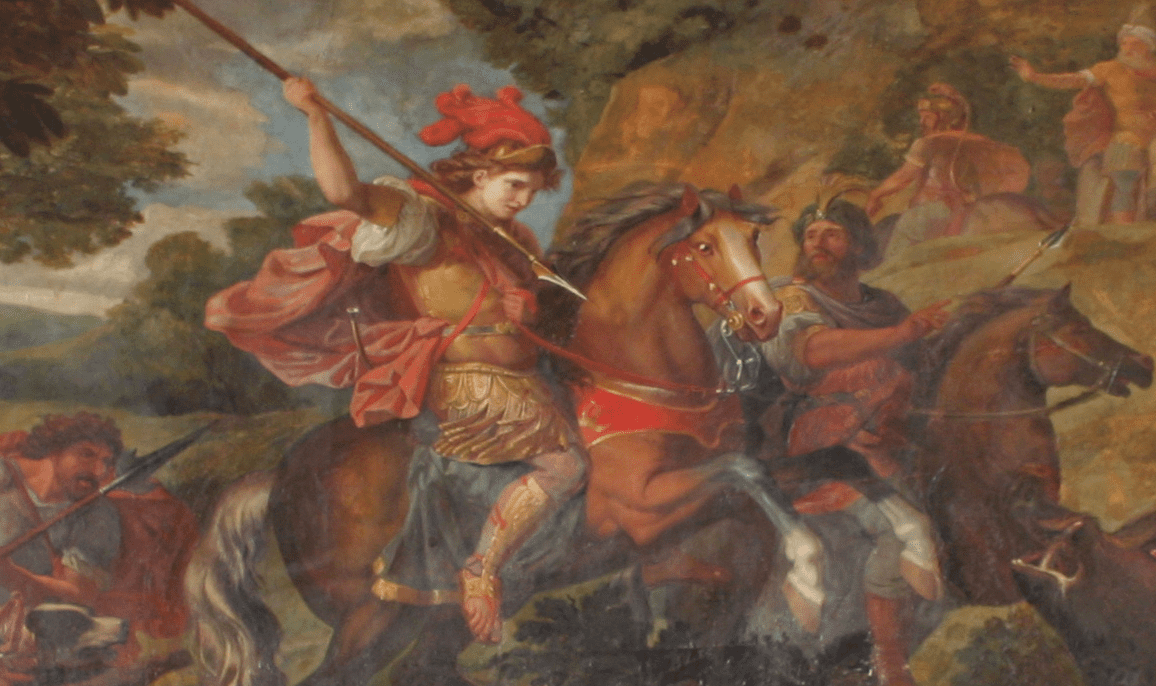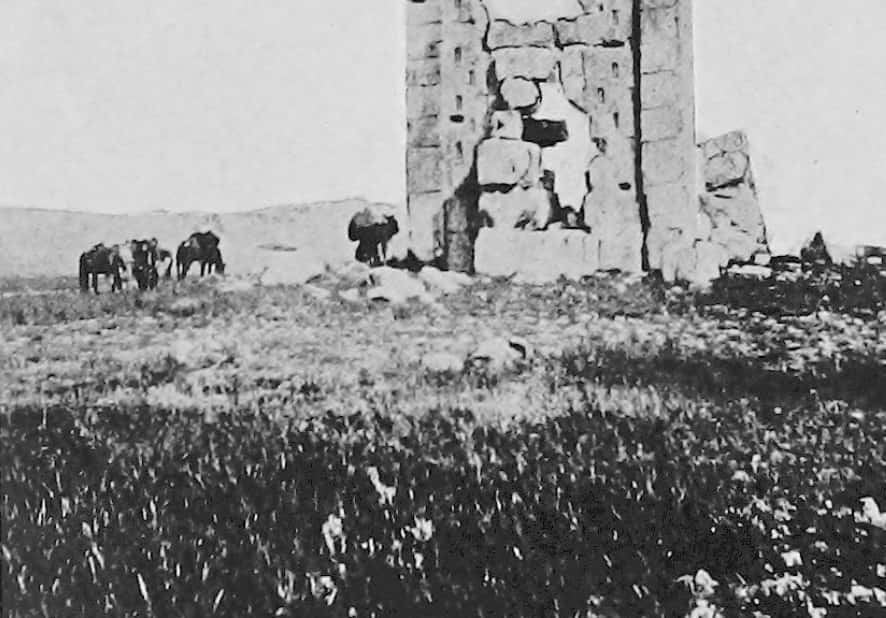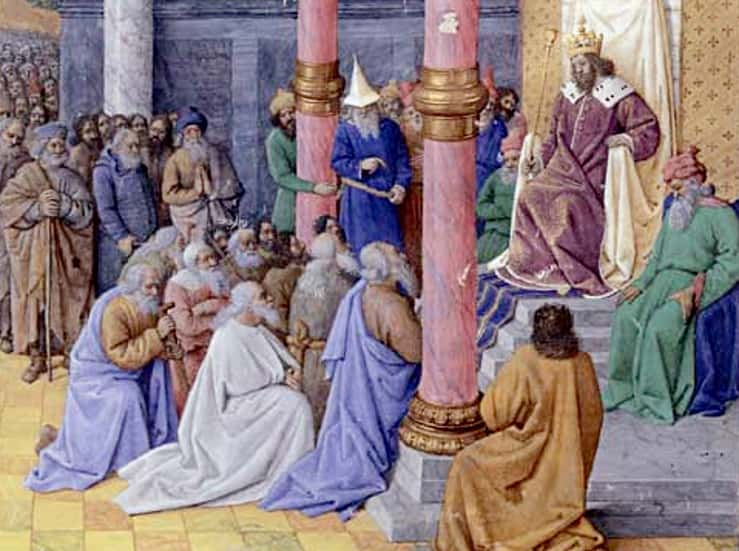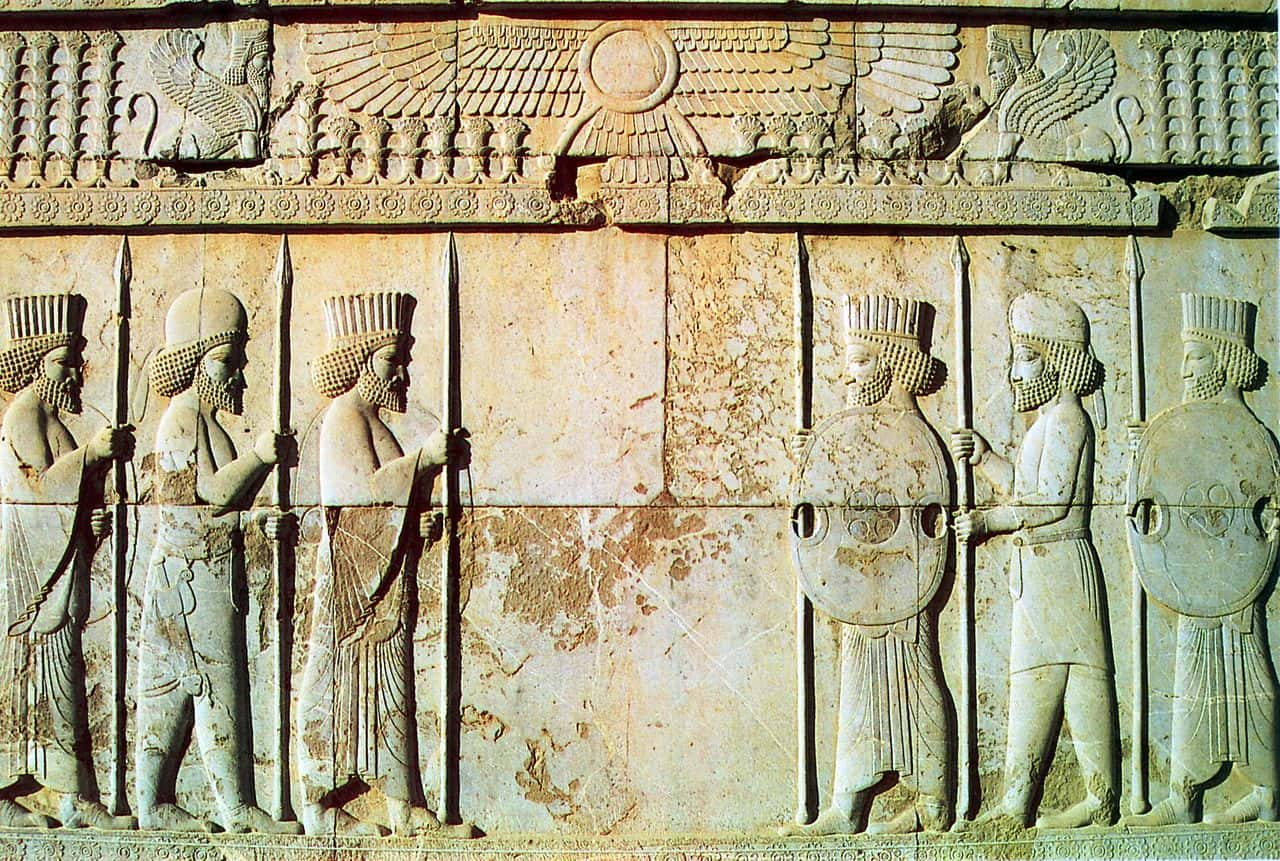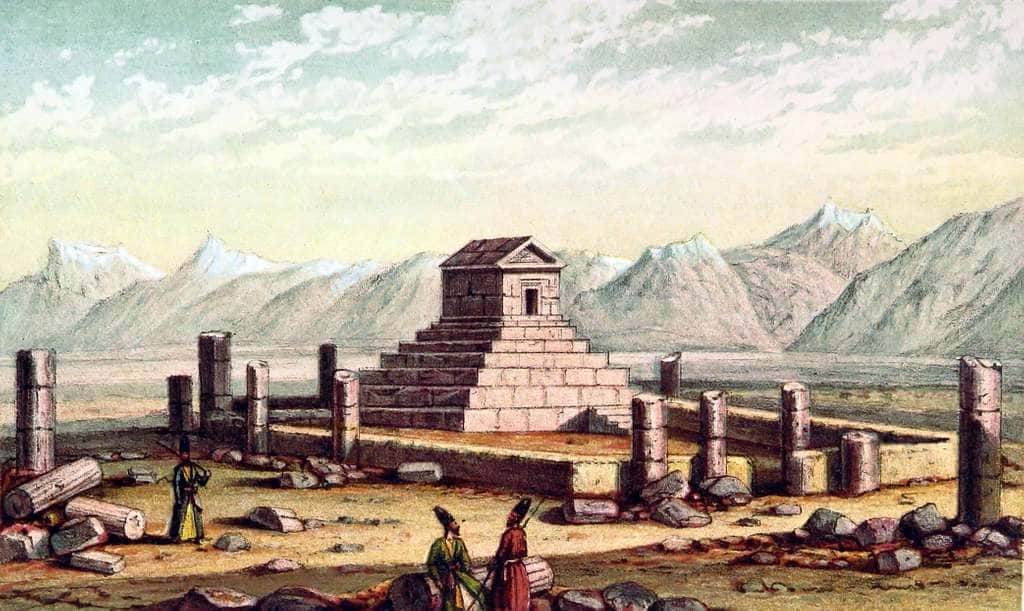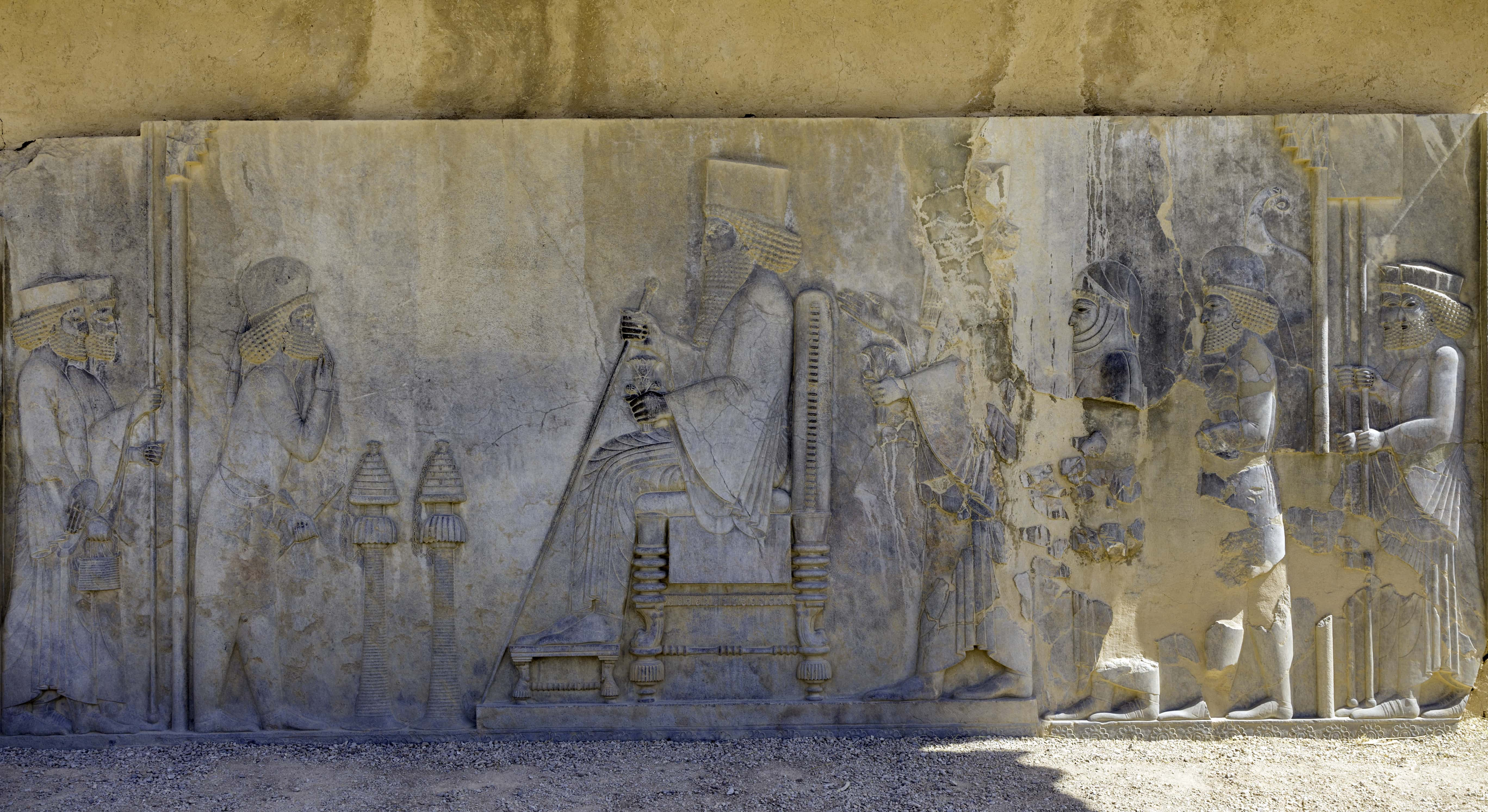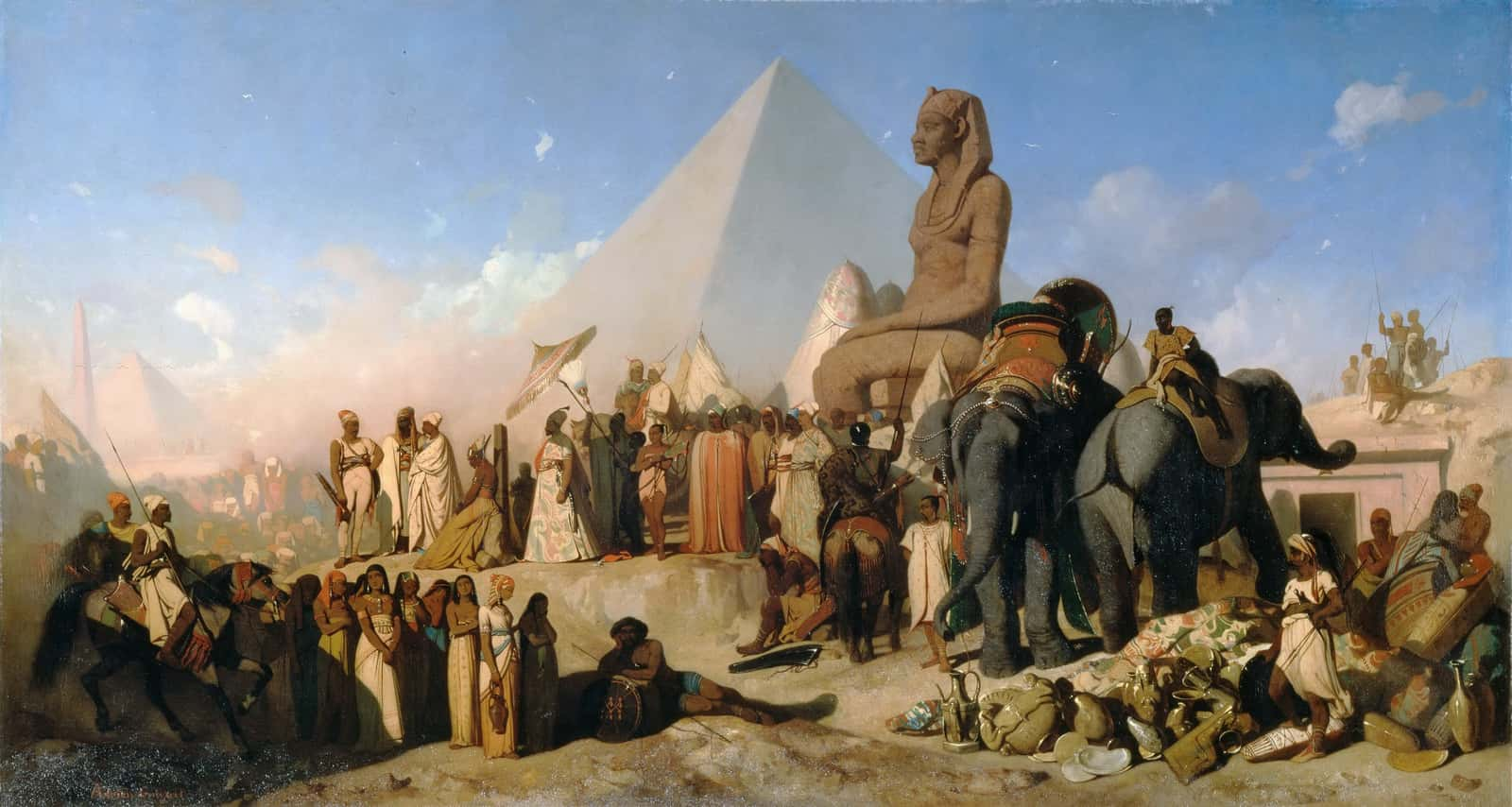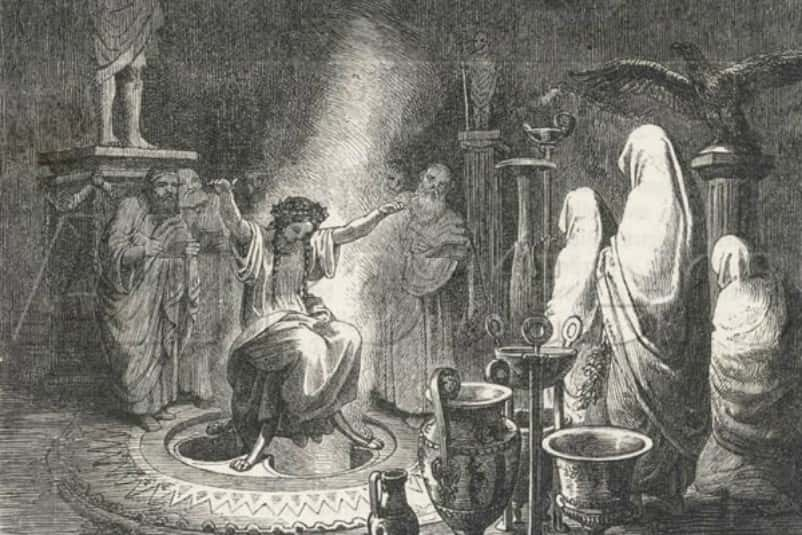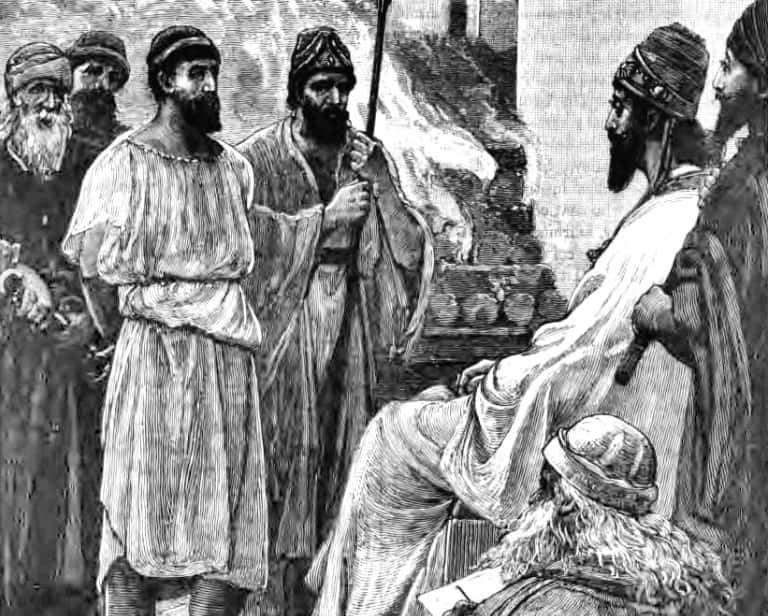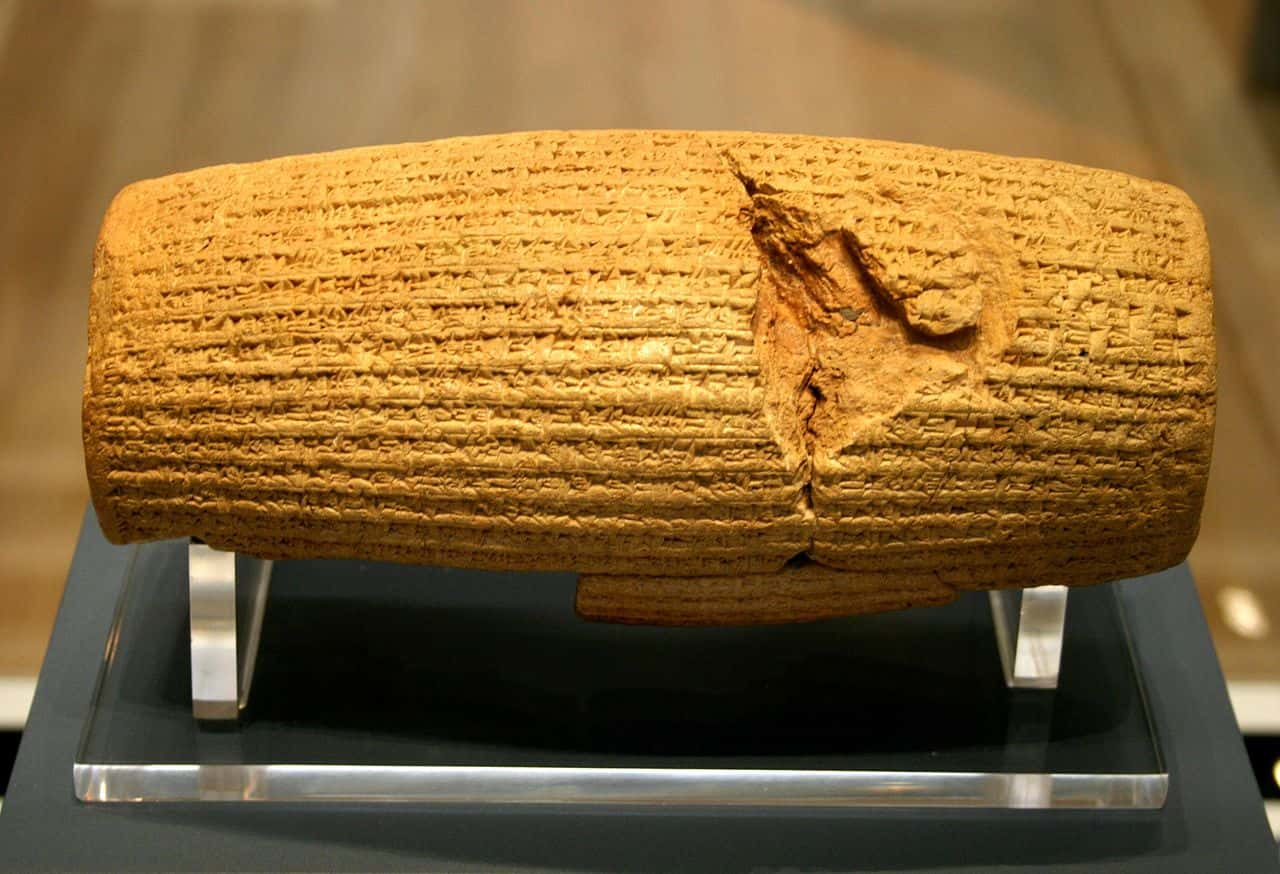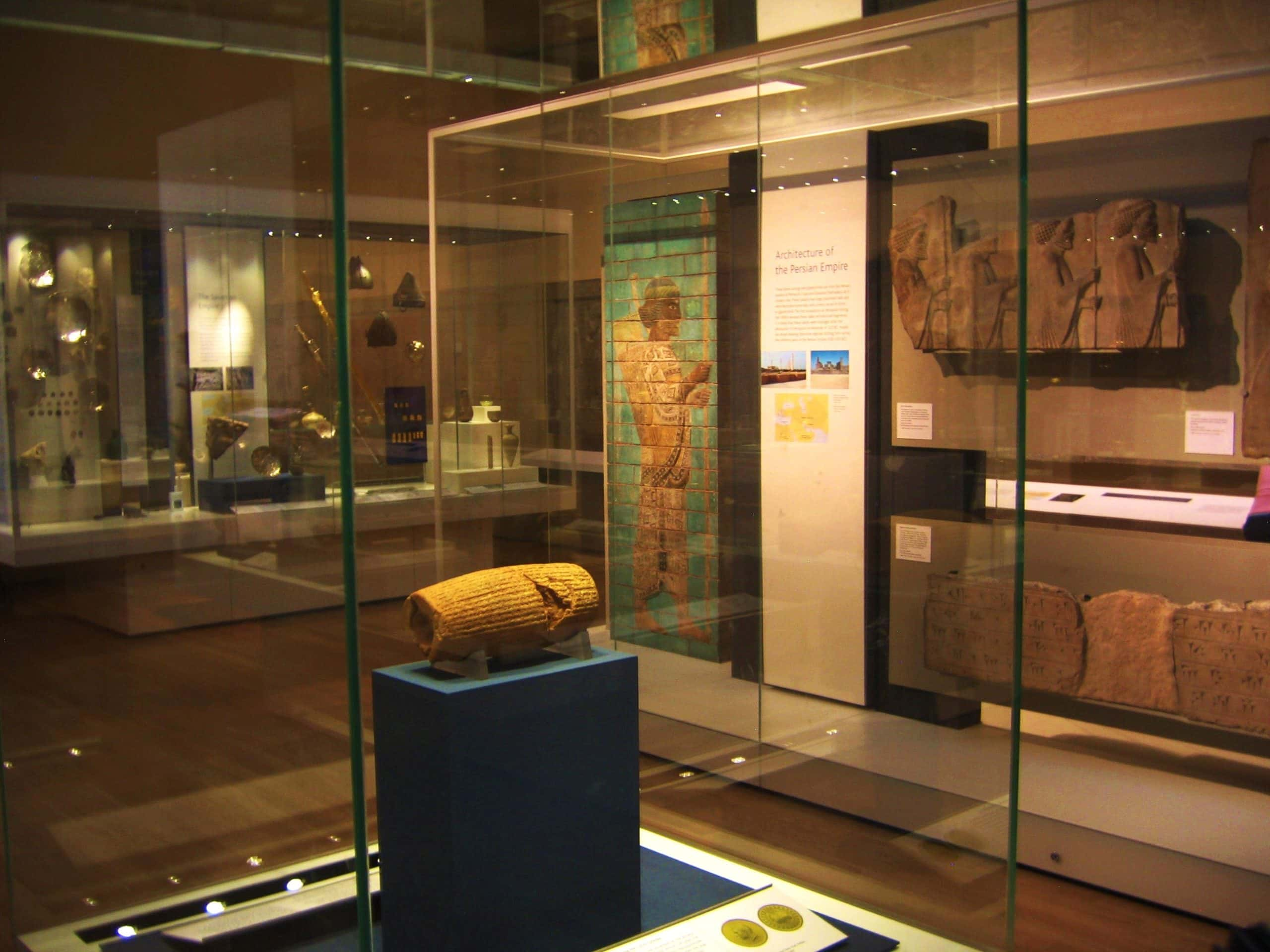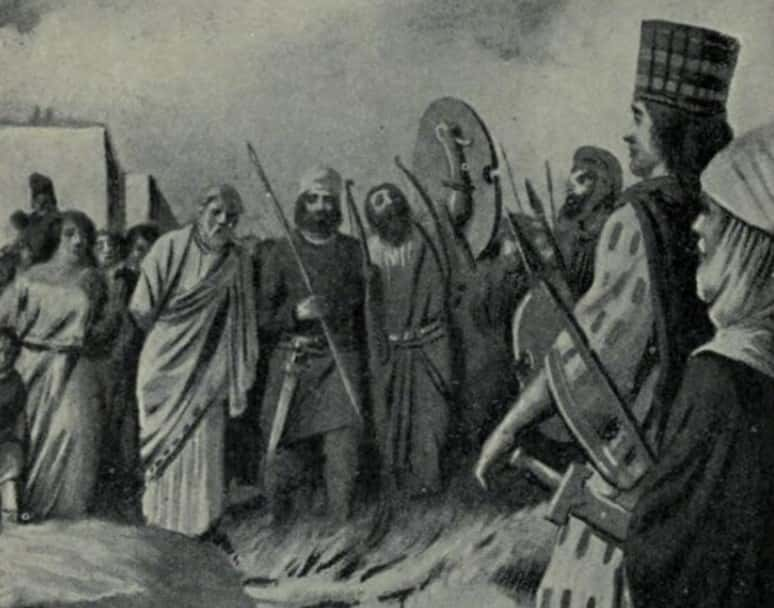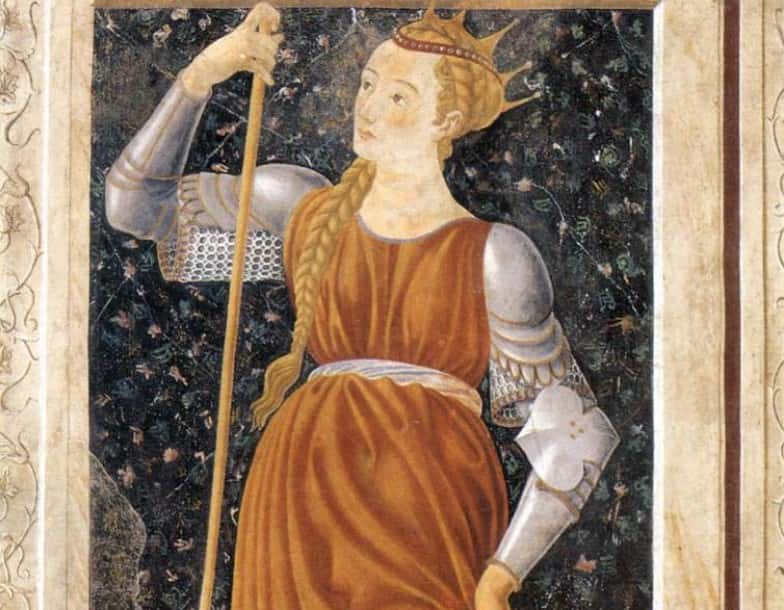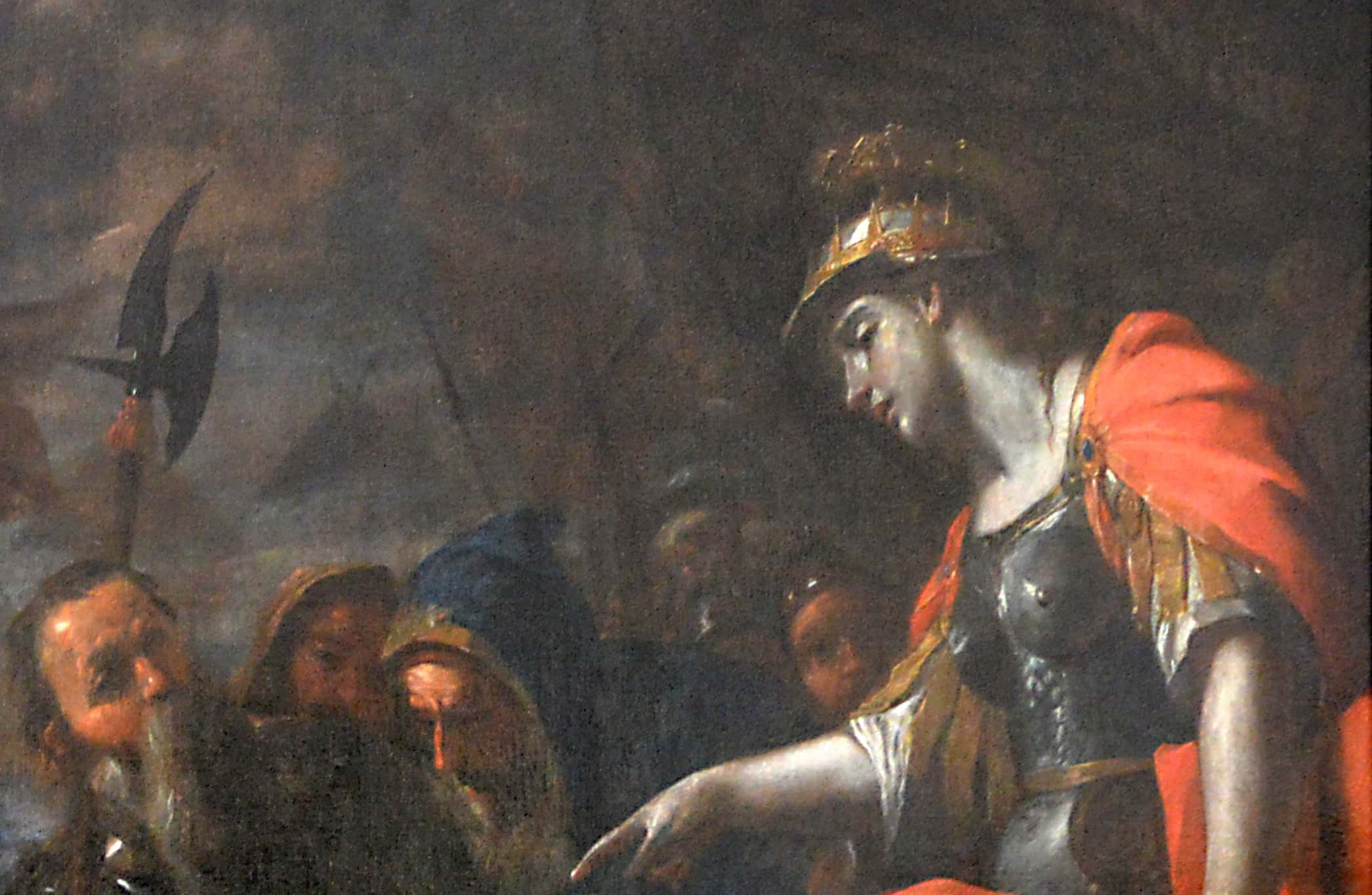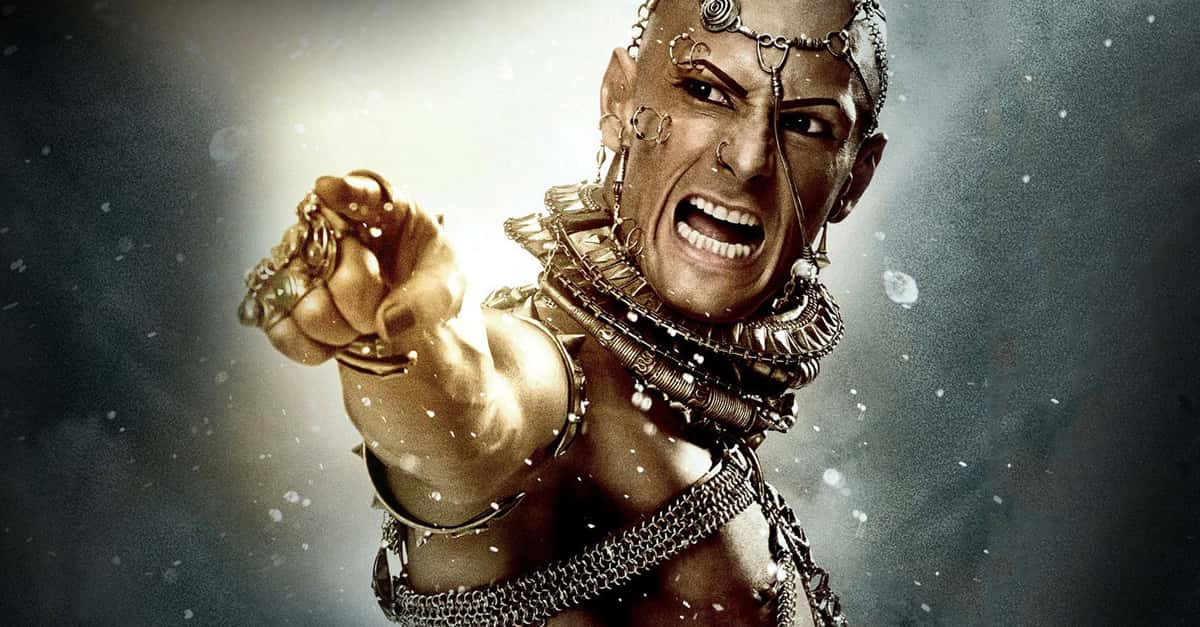Before there was Julius Caesar, before there was Alexander the Great, a Persian king made his name as a conqueror of the world. Even the descendants of his enemies had nothing but respect and admiration for Cyrus the Great. His legacy became an example for future warlords, kings, and conquerors. He was a legend, and yet few people know this mighty king's dark history—so we suggest you start reading the facts that we at Factinate have helpfully provided.
1. Trend-Setter
Cyrus was a member of the Achaemenid dynasty, who ruled the first Persian Empire. During the reign of this dynasty, they controlled more land than any empire ever had before them, and its golden age began with Cyrus’s conquests. Also, in case the name “Achaemenid” rings a bell, it’s the same dynasty which contained Xerxes, who famously met the Spartans at Thermopylae.
The Achaemenid Dynasty ended with Alexander the Great’s conquest of the Persian Empire.
2. It’s Not Who Was First, It’s Who Was Best
It’s worth pointing out that Cyrus wasn’t the first ruler in his dynasty to bear his name. He was actually Cyrus II, with his paternal grandfather being the first of that name.
3. Now That’s an Endorsement!
It wasn't just the Persians who loved Cyrus, even his enemies thought highly of him. The Greek historian Herodotus took the time to write about the former Persian king. For years, historians considered Herodotus's biography the primary source on Cyrus’s life (though given what we know about Herodotus, we have to take his facts with a grain of salt).
Another Greek historian who wrote of Cyrus was Xenophon, who deeply admired the Persian emperor. He admired him so much that he used Cyrus's life and legacy in a treatise on the ideal ruler. You know that you’ve entered the upper echelon of history when even your enemies praise you!
4. If You’re Going to Nitpick About It…
The name “Cyrus” is actually a Latinized version of the Persian King’s name. The original spelling would be closer to “Kurus.”
Persian alphabet, I am Kurus
5. It’s All Greek to Me
People have debated the meaning of Cyrus’s original name for centuries, as various languages ascribe different meanings to the name. According to Plutarch, Cyrus was named after the Sun, or “Kuros.” Given that the Persian culture had a longstanding worship of the sun, this certainly seems plausible. However, another theory put forward claims that Cyrus’s name derived from an ancient Indo-European word which means “to humiliate.”
This would make Cyrus the humiliator of his enemies, which would certainly be accurate, given how his life turned out.
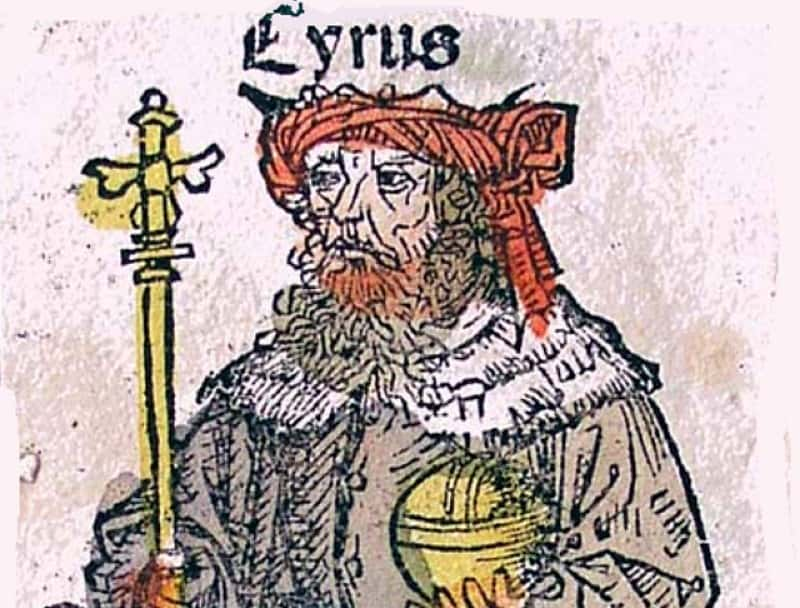 Picryl
Picryl
6. Lack of Evidence?
Despite the fact that Cyrus created and ruled the mighty Persian Empire, very little is actually known of his home life. It isn’t even known how many children Cyrus had. The only ones who were reliably confirmed in historical records were two sons and a daughter (more on them later).
7. Long Live the King
Cyrus ruled as King of Persia from 559 BC until his death in 530 BC. In between those thirty-odd years, Cyrus also became the king of Media (starting in 549 BC), Lydia (starting in 547 BC), and Babylon (starting in 539 BC).
8. From One Great to Another
One of Cyrus’s biggest admirers was none other than Alexander the Great. By the time of Alexander’s lifetime, Cyrus was long dead, but he was already a legendary figure, even amongst the Greeks. While he was a child, the would-be conqueror read a great deal about Cyrus’s life and legacy. We can assume that Alex saw Cyrus’s reputation for conquests as a standard to outdo during his own lifetime.
 Alexander (2004), Warner Bros.
Alexander (2004), Warner Bros.
9. Oh No You Didn’t!
Alexander’s admiration for Cyrus went far beyond reading about him as a student of history, however. When Alexander conquered the Persian Empire, he assigned guards to watch over the tomb of Cyrus in the city of Pasargadae. After he returned from his Indian conquests, Alexander learned that the guards of that tomb had desecrated it, which was the exact opposite of the orders they were given.
Infuriated at the idea of Cyrus’s tomb being violated, Alexander had the perpetrators caught and executed.

Sign up to our newsletter.
History’s most fascinating stories and darkest secrets, delivered to your inbox daily. Making distraction rewarding since 2017.
10. Place Without Time
No one knows the exact year Cyrus was born, but historians have determined that came into the world at some point between 598 and 600 BC. We also do not know exactly where Cyrus was born, but it was likely either the city of Media or Persis.
11. Doubly Monarchal
Cyrus was born into royalty on both sides of his family. His father was Cambyses I, King of Anshan, and his mother was Mandane, the daughter of Astyages, who was the King of Media.
12. If it Ain’t Broke…
Cyrus was responsible for setting up the satrapy system to administer his empire. He divided his territory into provinces known as satrapies, with a satrap serving as a governor of sorts. A state secretary and a general both aided the satraps in administration and maintaining order within their territories. This system was so effective that the Persian Empire continued using it long after Cyrus died.
Even after he’d conquered the Persian Empire, Alexander the Great also continued the satrapy system instead of replacing it with something else.
13. Hindsight is 20/20
As with many great figures of the ancient world, historians gave Cyrus a legendary origin story which justified his subsequent greatness. Herodotus claimed that Cyrus’s maternal grandfather, King Astyages, had a dream where vines emerged from his daughter’s pelvis and spread across the entire kingdom. Gross imagery aside, the seers allegedly interpreted the dream as a warning that his grandson would take over his kingdom.
To be fair, that's what ended up happening, but more on that later.
14. Multiple Choice Answer
Cyrus’s mighty empire contained four capital cities (as befitting the way that Cyrus divided his empire into several states). These cities were Babylon, Susa, Ecbatana, and Pasargadae. Cyrus gave each a certain level of self-governance, while still owing fealty to the emperor.
15. No Need to Thank Me!
Through Xenophon’s biography of Cyrus (known as the Cyropaedia), countless students in western civilization have read Cyrus’s life story. It's largely thanks to this book that he continued to be an inspirational figure for centuries. One man who particularly loved the Cyropaedia was none other than Founding Father Thomas Jefferson. He kept two copies of the book in his possession, and he extensively marked and noted within their margins.
Historians studying these personal copies have gleaned that Cyrus’s example greatly inspired Jefferson when he was first writing the United States Declaration of Independence!
16. This Sounds Familiar
Herodotus claimed that King Astyages ordered Cyrus, his grandson, to be put to death out of fear that the boy would grow to supplant him. However, Cyrus survived because of the mercy of Harpagus, one of Astyages’s servants. Harpagus either sent Cyrus to live with a shepherd family, or a poor family who worked in Astyages’s own court. If you think you’ve heard this before, you’re probably right, because this is a very similar origin story to such figures as Moses, Paris of Troy, and Atalanta.
Herodotus must have been feeling uncreative the day he wrote about Cyrus’s childhood.
17. Love and Marriage
It’s not known when exactly it happened, but Cyrus married a Persian noblewoman named Cassandane. Despite this being a time when marriages weren’t necessarily done out of passion, Cyrus and Cassandane were said to be madly in love with each other. Cassandane went on to be the mother to all of Cyrus’s known children.
18. Status: Unknown
One aspect of Cyrus that remains a mystery is his personal belief system. We have no idea what religion he practiced, or whether he was an atheist. His tolerance towards religious minorities makes it much more difficult to glean what his personal faith might have been.
19. Family Disputes
Although Cyrus’s father was technically a king, he was also a vassal to his father-in-law, King Astyages of Media. When Cyrus became king of Persia, however, trouble began in earnest. His maternal grandfather actually went to war with him when Cyrus decided he wasn’t going to be a subservient king like his dad had been. Astyages went to war against his grandson, but in the first instance of Cyrus’s military genius, he defeated his grandfather in combat after three years of war.
20. Don’t Go Targaryen, Here…
You might be wondering what might have happened to Cyrus’s grandfather after Cyrus defeated him and took the kingship of Media for his own. According to one source, the conquering king spared Astyages on account of his being Cyrus's grandfather. Cyrus then secured the peace by marrying Astyages’s daughter, Amytis. Though, for anyone keeping track, that would mean that Cyrus married his own aunt…
21. Speedy Delivery Guaranteed!
Believe it or not, Cyrus oversaw the establishment of a postal system which reached all corners of his empire. Officials organized and maintained the mail at primitive post offices and depots known as the Chapar Khaneh. They also hired couriers to travel between each of these stations. Each of these mail depots housed supplies and fresh horses to maximize the efficiency of the mail system.
No word on whether Cyrus put his name on all the postage stamps of the time.
22. Monied Foe
One of Cyrus’s most well-known opponents was Croesus, the king of Lydia. Croesus was so wealthy that his name is the basis for the English expression “rich as Croesus.” You can imagine why Cyrus would want to invade Lydia if their king had that kind of reputation. It should speak volumes that only after they conquered Lydia did the Persians use gold as the primary metal for their coinage.
23. Green-Thumbed King
Cyrus had a well-known passion for growing things. It was he who oversaw the establishment of a very elaborate system of gardens within his capital city of Pasargadae. Gardening became a trait that people often associated with Persians in the ancient world. The Persian kings would continue their predecessor’s interests by maintaining the vast gardens of Pasargadae for years after Cyrus’s death.
24. Checkmate!
One of the most famous examples of Cyrus’s military genius was during the immense Battle of Thymbra, fought against Croesus in 547 BC. Outnumbered two to one, Cyrus needed every advantage he could find, resulting in him thinking outside of the box. Noticing that horses were skittish around camels, he surrounded his archers with camels from his baggage train. This completely broke the enemy's cavalry charge.
Cyrus's ingenious tactic allowed him to employ his archers safely to rain arrows upon the enemy. They destroyed the Lydian mounted units and left the rest of the enemy army vulnerable to his own cavalry charge.
25. Sharing One’s Grief
In 538 BC, Cyrus’s beloved wife, Cassandane, passed away. Overwhelmed with grief, Cyrus bade that everyone in his empire undergo the same mourning for the death of their monarch. As a result, the entire Persian Empire mourned Cassandane’s death for six whole days.
26. Praise Him with Great Praise
The Jewish people honor Cyrus’s name and reputation to this very day. The Bible and Torah mention that the prophet Isaiah named Cyrus as “Messiah” (meaning “His anointed one”). This makes Cyrus the only non-Jew to hold that honor. Meanwhile, in modern-day Jerusalem, there is a street named after the Persian king.
27. “Kingsguard” Was Already Taken?
It was Cyrus who established the classic Persian unit known as the Immortals. These heavily armed soldiers served as bodyguards to the Persian kings. They could also turn the tide of battle thanks to their elite training and weaponry. The legend around this unit was that their numbers never fell below 10,000. The army immediately replaced any soldier in the unit who died in battle, giving them their "immortal" nickname.
Their fame has had some serious staying power—they made a famous appearance in Zack Snyder's 300, a cool two and a half millennia after their formation.
28. The Bigger Picture
Just like his future admirer, Alexander the Great, Cyrus sought to learn from the people that he conquered and to bring them into the empire which he created. After years of fighting the Medes, Cyrus took on several traditions of kingship which the Medes had had when they’d ruled the Persians. Cyrus also adapted several policies, fashions, and organizational systems from other cultures, such as the Elamites.
29. Mysterious Circumstances
It’s unknown how exactly Cyrus died, and historians of antiquity wrote several different versions of his death. Herodotus published the most famous account of Cyrus’s death. We’ll explain what happened, but we should point out that Herodotus claimed to have heard this account from a reliable source...who nevertheless claimed that he wasn’t around to actually bear witness to Cyrus’s death.
30. Feuding Family
One of the men whom Cyrus removed from power in his assumption of the Median crown was his own uncle, Arsames. Of course, this was already after Cyrus had defeated his grandfather’s armies, so the transition was a bit less violent this time around. Not only was Arsames willing to surrender, he managed to secure a governing position in Cyrus’s empire.
Many years later, Arsames’s grandson became King Darius the Great after the deaths of Cyrus’s sons.
31. Nice Try, Junior
It would be hard for any act to follow Cyrus’s run as Persian King, but life seemed especially cruel to Cyrus’s son and heir. Ruling as Cambyses II, Cyrus’s successor did manage to conquer Egypt and bring it into the Persian Empire. However, his subsequent military campaigns resulted in disastrous failure for the most part. Cambyses II ended up ruling for less than a decade before a rival deposed and killed him.
32. This Can’t Backfire!
The war between Cyrus and Croesus is marked with one of the most famous predictions in ancient history. Reportedly, before he set out to try and take on the up-and-coming Persian king, Croesus consulted with the Oracle at Delphi to find out what he should do. The Oracle famously stated that if Croesus went to war with the Persians, he would destroy a mighty empire.
Flushed with relief and confidence at such a prophecy, Croesus went full steam ahead with his military campaign. As you can imagine, the mighty empire that he ended up destroying was his own. This is why specific phrasing is important, kids!
33. You Decide!
When Cyrus conquered the kingdom of Lydia, there was one hiccup during the mop-up. Cyrus ordered a Lydian named Pactyas to bring the Lydian king’s incredible fortune to Persia from the former capital city of Sardis. Instead, Pactyas used some of the wealth to hire mercenaries to stir up a revolt within Sardis. Cyrus sent a commander named Mazares to put an end to the revolt but gave strict instructions that Pactyas must be returned alive.
After Pactyas fled for a time, Persian soldiers eventually caught him and delivered him to Cyrus. This is presumably where we'd describe the truly grisly death that Cyrus arranged for his captive. We'd love to do that, we really would, but we don’t actually know what Cyrus did to Pactyas. This means that you’re free to imagine the worst kind of tortures that a man like Cyrus could inflict.
34. But Does It Tell Me the Date?
One of the most important artifacts that we have from Cyrus's reign is the Cyrus Calendar. On the surface, it's merely a small clay cylinder covered with writing. That writing describes Cyrus’s repatriating of populations who had been driven out of Babylon, as well as his restoring religious buildings back to their former prestige. It marked the first time in recorded history that a ruler dealt with a multi-ethnic and multicultural populace.
35. Bold Assertions
Aside from its obvious value as a part of antiquity, many historians have hailed the Cyrus Calendar as “the first human rights charter in history.” Naturally, such a claim has created a rather fierce dialogue about whether that’s true. Either way, the Shah of Iran declared it to be a symbol of Iran. Even now, the Cyrus Calendar remains an important part of Iran’s cultural identity.
36. Let Him Lie
Today, UNESCO designates Cyrus’s tomb at Pasargadae as a World Heritage site. What is remarkable about the site is how it has endured despite countless wars, invasions, and climate changes. Just like with Cyrus’s legacy and impact on world history, his final resting place has survived the test of time.
37. Choose Your Own Conclusion
There are a couple of dueling narratives surrounding Cyrus's defeat of Croesus and conquest of Lydia. The most famous version of what happened is that Cyrus ordered a captive Croesus to be burned alive. Allegedly, he wanted to see if divine intervention would save the fallen king from dying in such a gruesome manner. However, sources differ on the outcome.
Some say that Cyrus burned Croesus alive, but Apollo rescued the Lydian king from the flames. Others claim that Cyrus himself ordered the flames to be put out because he pitied Croesus. Croesus either died on the pyre or became an advisor to Cyrus for the rest of his life.
38. War of Words
According to Herodotus, Cyrus was encroaching on the territory of a tribe called the Massagetae, who lived in a region now found in Uzbekistan. Cyrus initially suggested that he marry the ruler of the Massagetae, a warrior queen named Tomyris. Tomyris refused the offer, however, and warned him to stay out of her territory or else.
39. Joke’s on You!
As you can imagine, neither the Persian king Cyrus nor the Massagetae empress Tomyris were content to leave the situation as it was. To settle the issue, Tomyris suggested that their armies face off at a specific time and place. Cyrus accepted, but he had a plan to use trickery to take an easy victory. Cyrus had learned that the Massagetae were unused to the effects of wine and planned to use this to his advantage.
He arrived early, set up camp, and then led his best troops away, leaving the worst ones behind with a vast store of wine. Tomyris’s son, Spargapises, led the advance units of the Massagetae to the camp. They slaughtered the soldiers within and began pounding the wine left behind. Cyrus swept into the camp and massacred the drunken Massagetae.
Spargapises ended up killing himself in captivity, presumably while suffering the worst hangover that anyone’s ever had in the history of humanity.
40. The Battle to End Battles
As you can imagine, Tomyris was livid when she heard about Cyrus’s deceitful victory over her son and the slaughter of a third of her troops. This time, she personally led her army against Cyrus. Herodotus helpfully labeled the subsequent battle as the fiercest fought in the history of the ancient world up to that point. The Massagetae defeated Cyrus, killing him in the battle.
A victorious Tomyris even claimed a trophy by decapitating his body. Allegedly, she dipped Cyrus's head in blood, in mockery of his bloodthirstiness in life.

